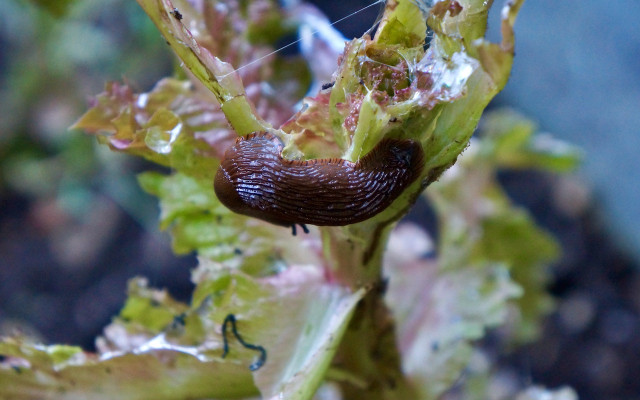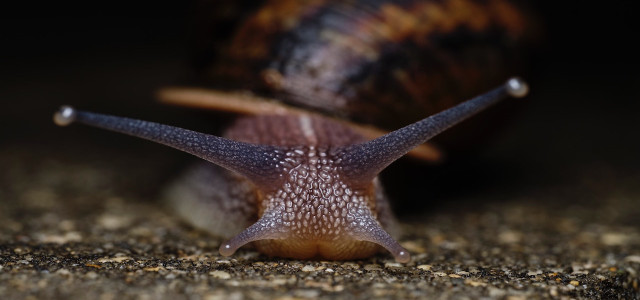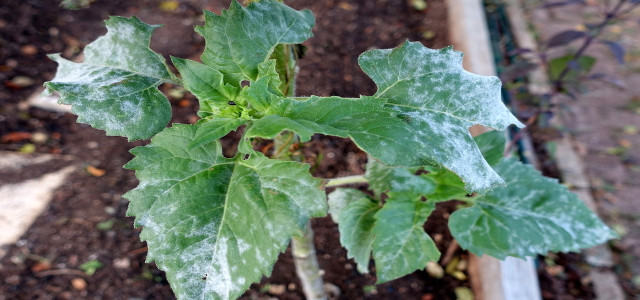Slugs are every gardener’s worst nightmare. Not only do they leave a slimy trail wherever they go, they also destroy your beloved plants. If you’ve got a slug problem, don’t worry! We’ll show you how to get rid of slugs in your garden naturally.
Seeing as slugs are nighttime/rainy day feeders, it can be hard to properly diagnose them as the pest that is causing the damage to you garden. That being said, there are certain signs to watch out for, to help identify slugs as the problem:
- go out at night with a flashlight to see if you can spot any
- look for slime trails on both the ground and the plants themselves
- check for large holes in the leaves of plants, or holes with tiny scalloped edges
Once you’ve identified slugs as the culprit, the next step is to try and get them to leave your garden alone. Let’s take a look at how to get rid of slugs from your garden naturally.
Natural Solutions for Getting Rid of Slugs

1. Use Plants to Your Advantage
Skip the chemicals and add more plants to your garden. Plants can act as a natural pesticide — especially if the scents repel slugs. Things like wormwood, fennel, anise, and rosemary are said to do the trick. Slugs also dislike plants with fuzzy or furry foliage.
2. Lure Slugs Away
Leave a pile of old lettuce leaves in a damp and shady corner of your garden to entice the slugs. Once they congregate by the food source, scoop them up and take them to a nearby forest. You can do the same thing by placing a wooden plank in the garden and wait for midday. Once you flip the plank over, you can remove the slugs and take them away.
3. Use a Crushed Eggshell Barrier



Broken eggshells provide a natural barrier for slugs, since the jagged edges aren’t the nicest terrain for them to glide over. Sprinkle the broken eggshells around the base of the plants you want them to leave alone. Not only that, but they can also act as fertilizer for your garden!
Read more: How to Use Eggshells as Fertilizer for Your Garden Plants
4. Pay Attention to Watering Times
It’s important to water your garden at the right time of day. Avoid watering your garden late in the day because slugs thrive in wet conditions. If you water in the morning, this gives your garden a chance to dry out by nightfall. Watering in the morning is a good habit to have, whether you have a problem with slugs or not!
5. Utilize Wool to Keep Slugs Out of Your Garden
It turns out slugs are as irritated by itchy wool as humans are — they don’t like climbing over the course texture. For plants that are heavily affected by slugs, place some natural wool at the base. This should deter them and keep your plants safe.
6. Repel Slugs with Coffee Grounds
There are so many useful ways to use up coffee grounds around the house. Not only do coffee grounds add nutrients to your soil, they can also work as a slug repellent. Slugs don’t love the scent of coffee, nor do they like the coarse feeling of the grounds.
7. Make Homemade Slug Repellent Spray
Get rid of slugs with a homemade slug repellent. Simply add cold coffee or garlic water to a spray bottle and spray the coffee all around the base of your plants. The smell alone should keep the slugs away. Just be careful not to spray the slugs directly, as these concoctions may kill them.
8. Get Rid of Slugs Using Copper



When snails touch copper, their slime reacts to give them a sort of electrical shock — not enough to harm them, just enough to encourage them to find a different spot. You can glue pennies to your garden border close enough together that a slug can’t sneak through.
9. Birds to Get Rid of Slugs Permanently
Birds will be your best friends in the fight against slugs. Not only will they bring their joyful song to your garden, they also love to feast on slugs. Attract birds to your garden with a birdbath, bird feeders, or specific plants that they love.
10. Keep a Tidy Garden
Slugs love dark and damp environments. By keeping your garden tidy, it makes it more difficult for them to find a suitable spot. You can start already in the fall by preparing your garden for winter. Then in the early spring, rake up all the leftover leaves and other debris. Chances are, there are slug eggs hiding in all of that! Avoid using large wood chips, and if you want to use mulch as a deterrent, make sure to only spread a thin layer on top.
Do you like this post?








